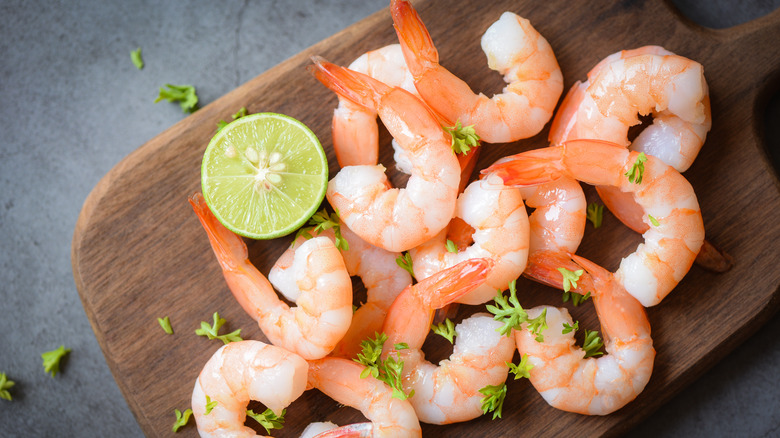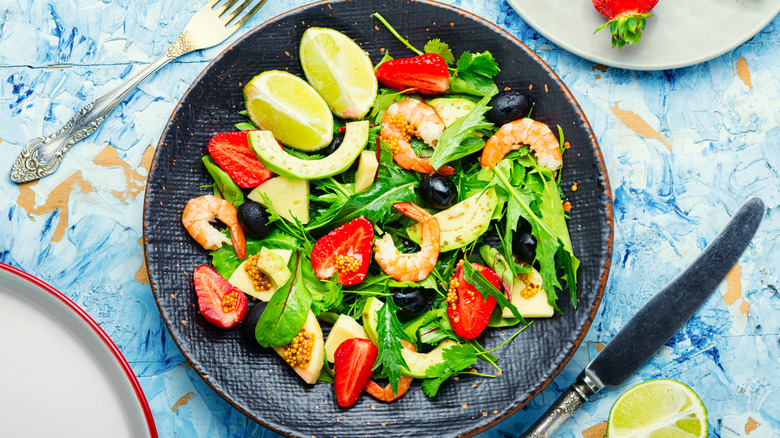The Unexpected Effect Shrimp Has On Your Cholesterol
Many people avoid shrimp because of its high cholesterol levels. While this is certainly something to keep in mind, you shouldn't be afraid of eating shrimp in moderation. According to Healthline, one 3.5 ounce serving contains 200 milligrams of cholesterol. Adults should only consume about 300 milligrams of cholesterol per day, so shrimp is clearly high in this substance. However, while a diet high in shrimp may raise LDL "bad" cholesterol levels, it may also raise HDL "good" cholesterol levels and lower triglyceride levels.
This means that overall, shrimp has a positive impact on cholesterol and heart health. When eaten in moderation, this seafood can be part of a healthy diet. If you have a high risk of developing heart disease, you may want to avoid too much shrimp in your diet to keep your cholesterol levels low. Speak with your doctor if you're concerned about how much shrimp you can safely eat.
Other health benefits of shrimp
In addition to being heart-healthy, there are plenty of other reasons to enjoy shrimp in your diet. According to The Healthy, a three-ounce serving provides a whopping 20 grams of protein, which is about 40% of your recommended daily value. Shrimp also contains a variety of nutrients including iodine, phosphorus, zinc, and magnesium. It also contains an antioxidant called astaxanthin which may reduce the risk of some diseases. "Anti-inflammatory properties of astaxanthin have also been shown to help with diabetes, gastrointestinal, renal, and skin and eye diseases," said registered dietitian Anya Rosen in New York.
Shrimp is a versatile ingredient and can be eaten warm or cold. Add a handful to soups, pasta dishes, and salads for a boost of protein and vitamins. Shrimp also needs to be fully cooked before it's eaten, so be sure that it's pink all the way through before you enjoy it.


